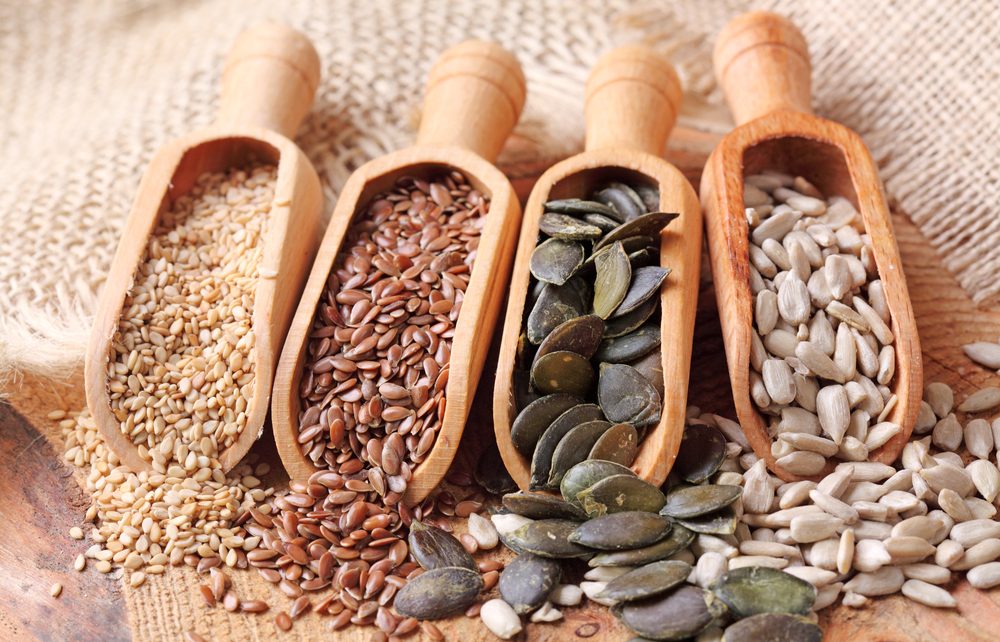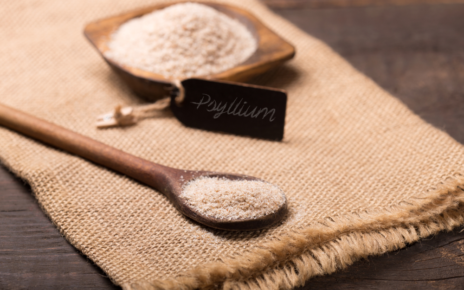Is it really possible that certain seeds can elevate your keto experience? You’ve likely heard whispers about the magical properties of chia, flax, and hemp seeds in the context of a ketogenic diet.
These tiny powerhouses pack a nutritional punch, offering healthy fats, fiber, and other essential nutrients without compromising your carb limit. Yet, the question remains: which of these seeds truly deserve a spot in your keto pantry?
As we explore the unique benefits and potential drawbacks of each, you’ll discover the key to optimizing your diet and perhaps, unlock new culinary delights that align with your ketogenic journey.
Chia Seeds: Keto Powerhouses
Chia seeds are a keto dieter’s dream, packing a nutritional punch with minimal carbs. You’ve probably heard about these tiny seeds, but you mightn’t realize how beneficial they can be for your keto journey. Besides being an excellent source of omega-3 fatty acids, they’re also rich in antioxidants, making them a powerful antioxidant source for fighting off free radicals.
One of the unique properties of chia seeds is their ability to absorb several times their weight in water, leading to chia hydration. This process not only keeps you hydrated longer but also can aid in weight loss by making you feel full and reducing appetite. Incorporating chia seeds into your diet can be as simple as creating a gel recipe. Just mix a portion of chia seeds with water and let them sit for a few minutes. This gel can be a base for keto-friendly puddings or even used as a thickener for soups and gravies.
Moreover, chia seeds are a versatile smoothie addition. Blend them with your favorite low-carb fruits and vegetables for a nutritional breakfast or snack that fits perfectly into your keto lifestyle. This not only boosts your nutrient intake but also helps in keeping your energy levels up throughout the day without adding significant carbs.
Flaxseeds: Fiber-Rich Favorites
Just as chia seeds are a boon for keto dieters, flaxseeds also offer a wealth of benefits, particularly when it comes to fiber content. These tiny seeds aren’t only high in fiber but are also a great source of healthy fats, making them an excellent addition to your keto diet. Flaxseed oil benefits your health by providing a good dose of omega-3 fatty acids, which are essential for heart health and reducing inflammation.
When incorporating flaxseeds into your diet, it’s important to know the best way to consume them. Grinding flaxseeds is essential for your body to absorb their nutrients fully. If you’re looking for grinding flaxseeds tips, a coffee grinder or a small food processor does the job efficiently, turning the seeds into a fine powder that you can easily add to smoothies, yogurts, and keto-friendly baked goods.
Speaking of baking, flaxseeds are fantastic for vegan baking swaps. A flax ‘egg’ can replace eggs in recipes, providing structure and moisture without the carbs. Just mix one tablespoon of ground flaxseed with three tablespoons of water and let it sit until it becomes gelatinous.
As for daily intake recommendations, aiming for about two tablespoons of ground flaxseed per day can help you meet your fiber needs while staying within your carb limit. Furthermore, an exploration of flaxseed’s antioxidant properties reveals that they’re not just about fiber and fats. These seeds are also packed with lignans, which have been shown to reduce the risk of certain cancers and improve overall health.
Hemp Seeds: Nutritional Gems
Have you ever considered adding hemp seeds to your keto diet for their remarkable nutritional profile? These tiny seeds are nutritional gems, packing a substantial punch in a small package. Not only are they rich in healthy fats, fitting perfectly into a ketogenic lifestyle, but their protein content is also noteworthy. With all essential amino acids present, hemp seeds offer a high-quality protein source, ideal for anyone looking to maintain or build muscle on a low-carb diet.
Beyond the impressive protein content, hemp oil benefits are another reason to consider these seeds. Rich in omega-3 and omega-6 fatty acids, hemp oil can support heart health and reduce inflammation. It’s a versatile oil, used not only in cooking but also in skincare, thanks to its moisturizing and anti-inflammatory properties. Incorporating hemp seed oil into your routine could help improve skin health, offering a natural solution for dryness and acne.
Hemp seeds thrive in mild climates and don’t require any special growth conditions, making them a sustainable crop. This ease of cultivation translates to a more affordable, eco-friendly option for consumers.
Their culinary versatility is also a significant advantage. You can sprinkle them on salads for a nutty crunch, blend them into smoothies for a protein boost, or even use them in keto-friendly baking. This adaptability makes hemp seeds a pantry staple for those following a ketogenic diet, providing a delicious way to enrich your meals with essential nutrients.
Pumpkin Seeds: Snackable Delights
Moving on to another excellent choice for your keto diet, pumpkin seeds are a snackable delight that offer a wealth of health benefits. Not only are they packed with healthy fats, fiber, and protein, but they’re also incredibly versatile. You can enjoy them raw, but exploring different roasting techniques can elevate their flavor to new heights. Preheat your oven, toss your seeds with a bit of oil, and experiment with a variety of seasoning blends. From spicy chili to aromatic cinnamon, there’s a flavor profile for every palate.
When it comes to storage tips, keeping your pumpkin seeds fresh is key. After roasting, let them cool completely before storing them in an airtight container. They’ll last in your pantry for a couple of months, but if you’ve made a large batch, consider refrigerating them to extend their shelf life even further.
The nutritional benefits of pumpkin seeds are hard to overlook. They’re a fantastic source of magnesium, zinc, and iron – nutrients often lacking in a standard diet, let alone a restrictive one like keto. Plus, their high fiber content supports digestive health and helps you feel full, making them an excellent snack to curb those mid-afternoon cravings.
Don’t just limit yourself to snacking on these seeds straight from the jar. Recipe incorporations are endless. Sprinkle them over salads for a crunchy texture, blend them into smoothies for a nutrient boost, or use them as a garnish on soups and stews. Their subtle nuttiness and satisfying crunch make pumpkin seeds a versatile ingredient in your keto kitchen arsenal.
Sesame Seeds: Crunchy and Nutty
After exploring the benefits of pumpkin seeds, let’s turn our attention to another keto-friendly powerhouse: sesame seeds, known for their crunchy texture and nutty flavor. These tiny seeds pack a punch when it comes to nutritional benefits, especially for those on a ketogenic diet.
Sesame seeds are a fantastic source of healthy fats, making them an ideal addition to your keto pantry. But their benefits don’t stop there. Sesame oil, extracted from these seeds, is highly valued for its antioxidant properties. It’s a versatile oil that can elevate the taste of your keto dishes while providing substantial health benefits.
Incorporating sesame seeds into your diet isn’t just about sprinkling them on your dishes. Tahini, a paste made from sesame seeds, opens up a world of culinary possibilities. Tahini recipes can range from dressings and sauces to keto-friendly hummus, offering a creamy texture and rich, nutty flavor that can enhance any meal.
But before you start adding sesame seeds to everything, consider toasting them to unlock their full flavor potential. Seed toasting tips are simple: just a few minutes in a dry pan over medium heat can turn them golden and intensify their nutty aroma, making them an irresistible addition to salads, soups, and keto bread.
Sesame seeds are also an excellent source of calcium, which is crucial for bone health. However, it’s important to be mindful of allergy considerations, as sesame is a common allergen.
Sunflower Seeds: Versatile and Filling
Sunflower seeds offer a delightful crunch and a wealth of nutrients, making them a perfect snack for those following a keto diet. They’re not just versatile; they’re incredibly filling, ensuring you stay satiated between meals. These tiny kernels are packed with healthy fats, protein, and fiber, ticking all the boxes for keto-friendly foods.
One of the great things about sunflower seeds is how they can transform into sunflower butter, a creamy and delicious alternative to traditional nut butters. It’s easy to make at home, requiring only a bit of roasting and a food processor. Speaking of roasting, mastering roasting techniques can elevate the flavor of sunflower seeds, bringing out a nutty depth that’s unmatched. Whether you prefer them lightly toasted or deeply roasted, there’s a technique that’ll suit your taste buds.
Don’t throw away the seed shells! They’ve several uses, from creating compost to adding them to homemade bird feeder DIY projects. It’s a wonderful way to repurpose waste and engage in eco-friendly practices.
Sunflower seeds also shine as salad toppings. Their crunchy texture adds a delightful contrast to soft greens, and their nutty flavor complements a variety of dressings. It’s an easy way to add nutritional value and satiety to your meals.
Pecan Seeds: Healthy Fats Galore
Packed with monounsaturated fats, pecans are a keto dieter’s dream for heart health and sustained energy levels. When you’re navigating the keto landscape, it’s crucial to pick foods that align with your macro goals. Pecans fit the bill perfectly. Their rich nutritional profile boasts not just healthy fats but also fiber, making them an excellent choice for maintaining fullness and aiding digestion.
Diving deeper into pecan cultivation, you’ll find it’s a meticulous process that ensures the high quality of these nuts. Grown primarily in the Southern United States, pecans require specific climatic conditions to flourish. This careful cultivation results in the delicious, buttery nuts you love, which aren’t just tasty but packed with health benefits. From improving heart health to aiding weight management, pecans are a powerhouse.
Roasting techniques can elevate the natural flavors of pecans, making them even more irresistible. Whether you’re tossing them in a salad or using them as a crunchy topping, a light roasting brings out a delightful depth of flavor. And let’s not overlook their sweet applications. While keto limits sugar intake, pecans can be used creatively in desserts that comply with your dietary restrictions, adding texture and richness without the guilt.
Incorporating pecans into your keto diet isn’t just about indulging in their creamy taste; it’s also about leveraging their health benefits. With their impressive nutritional profile, pecans support your keto journey by providing essential nutrients, promoting heart health, and ensuring you stay energized.
Macadamia Seeds: Luxurious Keto Addition
While pecans offer a rich source of healthy fats and nutrients for the keto diet, let’s not overlook the luxurious addition of macadamia seeds to your dietary lineup. These creamy seeds aren’t just a delight to your taste buds but also pack a punch with their high fat and low carb profile, making them perfect for keto enthusiasts.
Diving into macadamia oil benefits, you’ll find it’s a fantastic source of monounsaturated fats, which are great for heart health and can help keep your cholesterol levels in check. The oil is also versatile, perfect for both cooking and as a salad dressing, giving you a luxurious way to enjoy your meals while sticking to your keto goals.
Harvesting macadamias is an intricate process that reflects in their price, contributing to their status as a premium nut in the global macadamia market. Despite their cost, the investment in macadamias is worthwhile for anyone on a keto diet seeking nutritious and indulgent options.
When it comes to macadamia seed recipes, the possibilities are endless. From crushed macadamias as a crust for fish or chicken to being blended into a smooth, rich butter, these seeds offer a delightful texture and taste to various dishes. Moreover, macadamia dairy alternatives, such as macadamia milk and cheese, provide delicious, dairy-free ways to enjoy creamy textures without breaking your carb bank.
Almonds: Not Just a Nut
Almonds, often mistaken as mere nuts, are actually seeds that offer a treasure trove of benefits for those on a keto diet. Beyond their crunchy delight, almonds bring to the table a host of nutritional benefits, especially when you’re navigating the carb-restricted waters of keto. They’re not just a snack; they’re a versatile ingredient that can transform your keto experience.
Let’s dive into almond milk benefits. It’s a fantastic dairy-free alternative, low in carbs yet rich in vitamins and minerals, making it perfect for your morning coffee or smoothie. The beauty of almond milk doesn’t stop at your diet; it extends to skin health. Its vitamin E content is a boon for maintaining healthy, glowing skin, a welcome side effect of sipping on this nutty delight.
Almonds shine as a baking substitute too. Ground into flour, they offer a low-carb, gluten-free option for your keto baking adventures. Whether you’re whipping up a batch of muffins or crafting a crust for your keto pie, almond flour’s mild taste and light texture make it an indispensable ally in the kitchen.
The growth conditions for almonds are just as unique as their benefits. Thriving in warm, Mediterranean-like climates, these seeds require patience and care, embodying the adage that good things take time.
Walnuts: Brain-Boosting Snacks
Turning to walnuts, you’ll discover they’re not just a tasty snack but also a powerhouse for brain health. Beyond their crunchy delight, walnuts pack a punch with Omega 3 benefits that are crucial for cognitive health. These nuts are rich in alpha-linolenic acid (ALA), a type of Omega 3 fatty acid that’s been linked to improved brain function and reduced inflammation.
When you think about maintaining a sharp mind as you age, incorporating walnuts into your diet can be a smart move. They’re not only beneficial for your brain but also for your heart. The Omega 3s in walnuts support heart health by helping to maintain healthy cholesterol levels and reducing blood pressure.
But it doesn’t stop there. Walnuts are also celebrated for their high antioxidant content, which fights against oxidative stress and inflammation, two enemies of both cognitive and heart health. This makes walnuts a dual-threat in maintaining your body’s well-being.
Let’s not forget about walnut oil, which can be a versatile addition to your keto diet. It retains many of the health benefits of whole walnuts and can be used in dressings and sauces, adding a nutty flavor along with its health benefits.
Incorporating walnuts into your keto lifestyle isn’t just about enjoying a delicious snack; it’s about investing in your brain and heart health. With their Omega 3 benefits, antioxidant content, and positive effects on cognitive and heart health, walnuts are an essential part of a brain-boosting diet.
Conclusion
So, you’ve explored the world of keto-friendly seeds, each bringing its own unique benefits to your table. From the fiber-packed chia and flaxseeds to the nutrient-dense hemp seeds, and from the snackable pumpkin seeds to the crunchy sesame seeds, you’re set for success.
Don’t forget the high-fat delights like pecan and macadamia seeds, and the brain-boosting walnuts. Remember, almonds aren’t just nuts; they’re your keto allies.
Dive in and mix up your diet with these keto powerhouses.



